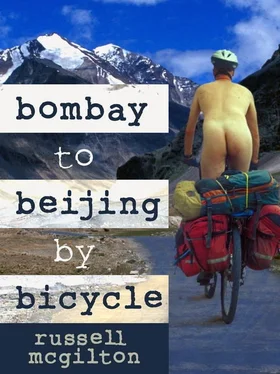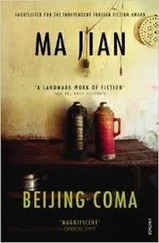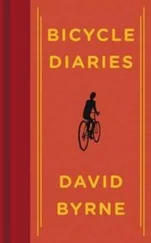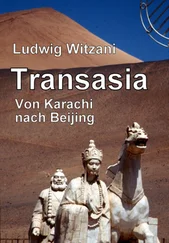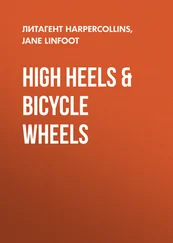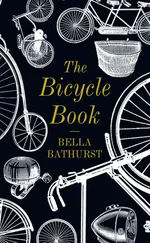‘You must come to Nasik again. We are going to be having a big party.’
‘When?’
‘In 2004 years.’
He was talking about Kumbh Mela, one of India’s most auspicious festivals. As legend has it, Vishnu was carrying a kumbh (pot) of the immortal amrit (nectar) when a scuffle broke out with other gods. Drops of the nectar were spilled and fell to earth at tirtha or ‘fords of a river’ (a place where the devout can cross into the celestial world) at Ujjain, Haridwar, Prayag and Nasik. Every three years, millions of pilgrims converge on the banks of the Ganges at these chosen places in accordance with the Hindu calendar.
This year the holiest of all Kumbh Melas – Maha Kumbh Mela – had been held at Allahabad. I had watched some of it on television from the safety of my hotel room in Mumbai, catching sight of thousands of Naga Sadhus (Hindu holy men) running stark naked into the Ganges, penises beating a path through the crowds, dreadlocks dancing behind them.
I repacked my bags, put on my helmet and got on the bike which felt (as it was my first day with the bike loaded), inordinately heavy, like driving a truck. With a wobbly start and wondering how I could possibly do this with so much weight, I rode out into Nasik’s traffic and within seconds nearly had my first accident when an auto-rickshaw cut me off and buzzed to a sudden stop. I fell heavily onto the headset of the handlebars with my groin. A woman in a lemon-coloured sari with Nana Mouskouri glasses gently stepped out of the auto-rickshaw, paid the driver, turned and cleared jets of snot from her nose, then looked at me oddly as I massaged myself back into shape. Just as I was about to resume, something beeped and roared behind me. It was a TATA goods-carrying truck.
These trundling orange relics were so numerous and of the same design (it hadn’t changed since Independence) that I felt that I was being followed by the same truck. They were bulky, heavy and sported large mudguards and broad cabins. Eyes were painted under the headlights to ward off bad luck and decorations of a karmic afterlife emblazoned the sides. Inside plastic flowers climbed over the windscreen, wisps of burning incense curled over pictures of deities, while a growling motor strained under the weight of the truck’s billowing cargo.
The worst feature of the TATA truck was its klaxon, which not only chimed the most absurd sounds like that of a child’s toy (only worse) but was so loud it blasted out all of my past lives. I tried wearing earplugs but soon sweated them out. Following the noise was the noxious cloud of diesel exhaust.
I veered right at a roundabout and headed up a gentle climb towards the Pandav Leva Caves, and dodged traffic that simply ignored that I even existed. Traffic moved faster here than in Mumbai and I wished for bicycle lanes but I doubted any of the drivers here would’ve bothered respecting them. Road rules, it seemed for most drivers, were meant for someone else. Cars and trucks failed to indicate, overtook on blind turns, laughed at stop signs and ran oncoming traffic off the road. No wonder, according to the National Crimes Record Bureau of Delhi, there were over 80 900 people killed in car accidents in India in 2001. [vii] In 2012, India has the highest number of road fatalities in the world, at over 130 000 per year
To this day I don’t know how I ever got through India alive.

The surface of the road was surprisingly good and, being the afternoon, it was thick with schoolchildren on bicycles. Within seconds two teenagers pulled alongside me on their clanking Indian bikes – heavy things with no cables that squeaked mercilessly and were ironically called ‘Hero’ – yet I couldn’t imagine any of these bikes saving anyone.
One of the teenagers spoke. His name was Devendra and he offered to take me to the caves.
‘But first let me take you to my grandmother’s house for some lunch.’
‘Well, I’ve really got to get going…’
‘Please, it is my duty.’
As I would find out, Indians are some of the most friendliest and hospitable people in the entire world and think nothing of inviting you into their homes and preparing a meal for you. To our great shame, I could not imagine Indian people receiving such generous treatment in Australia.
I followed Devendra and the other boy to a simple house in a quiet street with lazy eucalyptus and palm trees. The house had a large open lounge room with a high ceiling, and stairs leading up to a terrace. I would almost call it palatial.
Devendra’s aunt, a small, crumpled woman shadowed by a pink veil, came out from the kitchen to welcome us. I attempted to shake her hand but she put her palms together and bowed. I immediately felt stupid; I hadn’t quite adjusted to the social gender disparities.
Women in India, it seemed, were almost invisible. Men dominated the streets in large numbers, hanging off each other, laughing and talking loudly. Rarely did I have an opportunity to converse with women.
‘May I go?’ asked the boy who had followed us.
‘Yes, of course!’ I said, apologetic, and he left.
‘Indians. Always late,’ said Devendra derisively. Perhaps I had misread the situation. I thought the other boy had been his friend when in fact he had just tagged along. I wondered whether there had been some caste tension between them, as Devendra had seemed reluctant to let him past the door.
Like the class system in Britain, caste determines your station in Indian life. If you weren’t been born into one of the top three ranking castes – Brahmin (priests and teachers), Kshatryas (rulers and warriors), Vaishyas (merchants and cultivators) – and into anything else such as the Shudras (menials) or harijans (untouchables) then life was pretty much pitted against you even before you learnt how to walk.
Devendra’s aunt returned with dahl (lentils), rice, poppadums , roti (flat wheat bread), spicy potatoes, raw onions and water. We washed our hands and shovelled the food into our mouths.
‘Would you like some water to drink?’ Devendra asked. I was a little reluctant, my Western hysteria questioning whether the water was safe to drink. I relented.
‘Sure.’
He picked up the cup but instead of bringing it to his lips he held the cup above him so the water poured into his mouth in a controlled stream. I tried to copy Devendra’s example but the water missed my mouth entirely and sploshed up my nose and down my neck.
Devendra laughed.
‘This is Indian way. Not your way.’
Devendra and I thanked his aunt for lunch, said goodbye and then headed for the caves. We walked through a parched paddock that housed a number of families in tarpaulin shacks. Women, dark as chocolate, stared out expressionless while others hid their faces as we passed. A thick smell wafted off the hot bare hills.
‘Look out for the drops,’ warned Devendra.
He pointed to a fat brown shape the size of a rat. They were everywhere, dotting the hills like full stops on a page.
‘Much shitting here in India,’ he said, embarrassed. ‘These are simple people.’
‘Well… where else would they go?’
Then for some reason, Devendra steered the conversation to where I least expected it.
‘Western women… will they dominate me when they are wanting the sex?’
‘Dominate? Hmm,’ I didn’t know what to say and said, really, the wrong thing. ‘No, you have to pay more for that…’ I joked as I skipped over a brown lump.
‘Hello?’
‘No. No, they won’t.’
Читать дальше
